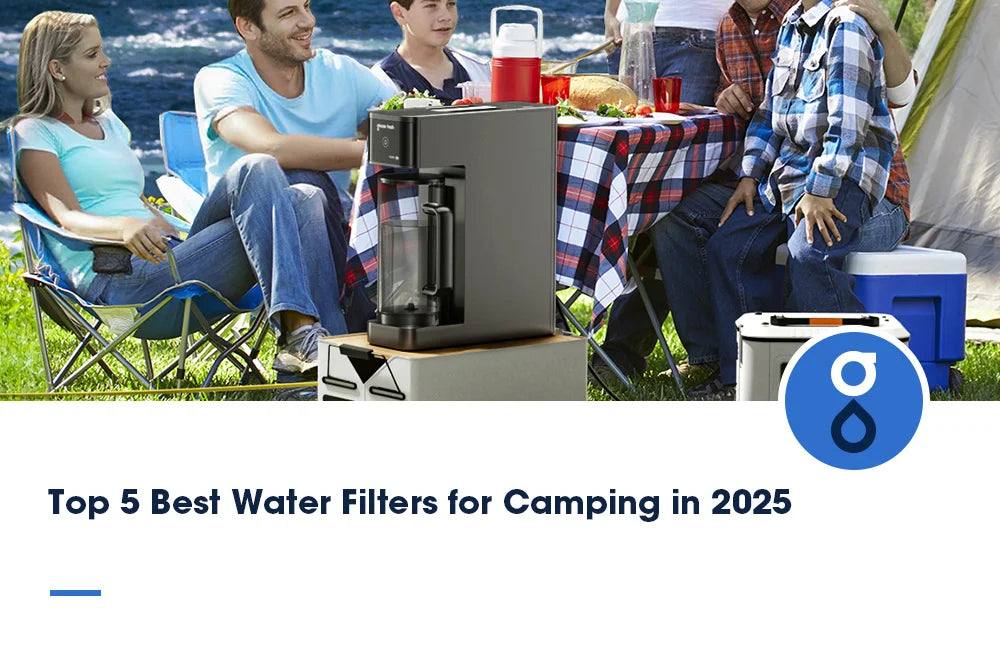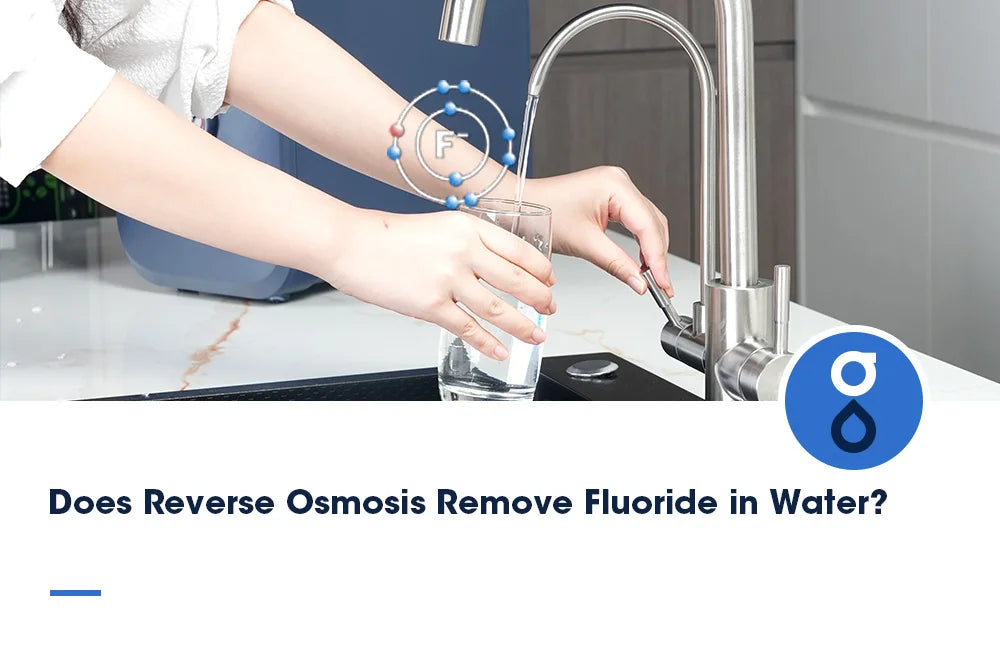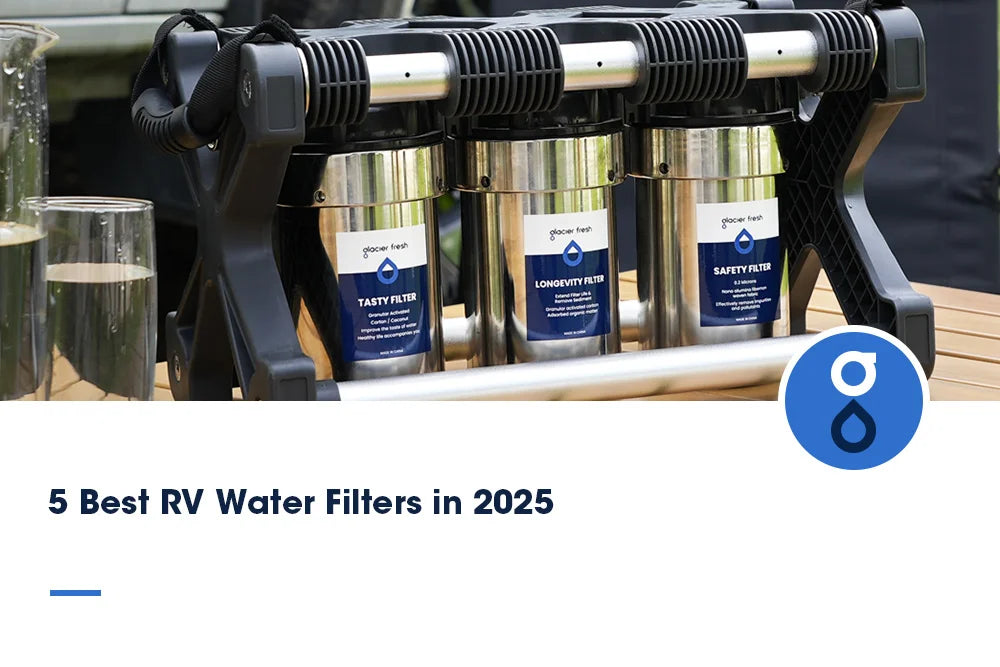Table of Contents:
Why Does Camping Need a Water Filter
What Are the Types of Camping Water Filters?
How to Choose the Water Filter for Camping
Best 5 Water Filters for Camping in 2025
Tips for Using Camping Water Filters Safely and Effectively
FAQs
Conclusion
Camping is an ideal solution to be close to nature, yet access to safe drinking water can be a problem. Campers usually need to be aware that not all lakes, rivers, and even campground taps can be relied on. Water filters eliminate impurities, enhance flavor, and offer you healthcare in the outdoor setting.
Portable water filters in 2025 are smarter than ever before, lighter, and efficiently designed. The purpose of the guide is to answer why you require one, how to find a quality one, and the top five best water filters to use when camping.
Why Does Camping Need a Water Filter

The appearance of natural waters can be clean, but they can harbor bacteria or viruses, protozoa, or even life-threatening chemicals. There is one terrible disease that may appear because of untreated drinking water, Giardia, or the so-called cryptosporidium. Campground tap water might be mixed with chlorine, sediments, or may even have an unappealing taste. One cannot travel with bottled water since it cannot be carried easily or in an environmentally friendly way. This is why you need water filters for camping: they can make water safe, tastier, and not rely on single-use plastic bottles.
What Are the Types of Camping Water Filters?
Water filters are not the same when it comes to camping. Each kind is intended to apply in a variety of situations and needs:
Pump Filters: Pull water in with a hose and filter it out. Sturdy yet heavier to transport.
Gravity Filters: deal for the group; use gravity to push water through a suspension bag without ever having to work hard.
Straw Filters: Small devices, such as LifeStra, where you drink right out of the stream of the bottle.
Bottle Filters: Reusable water bottles with built-in filters for convenience.
Reverse Osmosis (RO) Systems: The purification process is more technologically advanced because it removes almost all the contaminants, but heavier and requires some power. When considering RO options for camping, it’s similar to the process of How to Pick the Best Reverse Osmosis System at home—you’ll need to weigh purification strength, portability, and maintenance needs.
The appropriate filter would all depend on how you camp and whether you go out on a backpacking trip, in an RV, or in a group camp.
How to Choose the Water Filter for Camping
Selecting a filter depends on your source of water. A carbon or sediment filter might be sufficient where the rivers are clear or the campground has fresh tap water. In the case of cloudy/doubtable sources, select a multi-stage system or RO water filter. Portability is a consideration as well; ultralight straws can be used by backpackers, whereas RV campers can support a larger system.
The lifespan of filters is very diverse: filter life may take only a few hundred gallons or thousands. Consider convenience, fast setup is important when in the field. Finally, consider the budget. Simple straw filters are cheap, whereas advanced RO systems are more expensive, yet they offer the best purification.
Best 5 Water Filters for Camping in 2025
Now we can refer to the best device this year for campers, RVs, and outdoor adventurers.
1. GlacierFresh RV Reverse Osmosis System
GlacierFresh RV Reverse Osmosis System is a camping powerhouse. It incorporates an installed 3-step composite filter, including a reverse osmosis filter that eliminates 99.9% of water pollution, fluoride, lead, arsenic, chlorine, bacteria, and even viruses.
It can produce 12 oz of purified water, not less than once a minute, which is efficient in groups. It is small and lightweight with two power choices: a wall adapter or a mobile power bank, so it fits anywhere, whether at campgrounds or off-grid locations. It is available at $269.99 (on sale) and is a good option among the tents that would ensure maximum protection to the campers.
2. Glacier Fresh AUQAGO RV Water Filter System
AUQAGO RV Water Filter System is a 3-stage filtration device that serves outdoor enthusiasts. It includes a 0.2-micron high-flow filter for fine particles, a carbon filter made of coconut shell to filter chlorine and odor, and a sediment filter that further filters more powerful contaminants. This will guarantee good, clear, and tasty water in campsites.
At 10 lbs., it is lightweight and easily portable, and has quick-connect stainless steel fittings that make it hassle-free to assemble. It gives 500 gallons up to the time the filters are changed. It can be used in the field (camping), RVing, or boating; at $289.99, when it is on sale, it is a durable and stylish choice.
3. Glacier Fresh 2-Stage RV Water Filtration System
Calm and sleek, the Glacier Fresh 2-Stage RV Water Filtration System would be ideal for those campers who do not require additional weight in the form of clean water. It mixes a pleated pre-filter to eliminate sediments with a coconut shell carbon filter to enhance taste and to eliminate chlorine.
It weighs only 8.35 lbs. and can be more easily transported and placed in RVs' storage spaces. No electricity is needed in it, and it depends on the water pressure and so it can be used off-grid. It is among the most affordable water filters to use in camping in 2025 at an affordable price of just $129.99 (when it is on sale).
4. Sawyer Products MINI Water Filtration System
The Sawyer MINI is a widely used personal camping filter. It weighs just 2 oz and can fit in a pocket. It can pass up to 100,000 gallons of water through its 0.1-micron hollow fiber membrane, eliminating bacteria, protozoa, and microplastics. You can drink something out of a stream, put it in a bottle, or even drink straight off a hydration pack. It is very cheap, lightweight, and very durable, hence the favorite of a backpacker on a one-on-one camping expedition.
5. LifeStraw Personal Water Filter
The LifeStraw is also legendary in camping due to its simplicity. It is an easy carry straw filter that allows you to drink straight off the rivers or Lakes. It runs on a 0.2-micron membrane filter that gets rid of bacteria, parasites, and microplastics. It has the capacity to carry approximately 1,000 gallons, yet it is best during emergency use or when hiking by means of lightweight areas. It is still the miniature, cost-effective, and dependable types of water filters.
Tips for Using Camping Water Filters Safely and Effectively
To maintain your filter in good shape and guarantee quality drinking water when camping, observe these tips:
Consult the manufacturer's instructions before first use.
Flush new filters to remove carbon dust or trapped air.
Store filters properly in a cool, dry place when not in use.
Do not freeze the filter, as ice may destroy internal membranes.
Periodically change cartridges to avoid clogging or contamination.
When available, use clean water; muddy waters cut down on the flow and the life span of straw and bottle filters.
Keep RO through monitoring of water pressure and replenishing the pre-filters on a schedule. Many campers overlook small but critical steps in upkeep, and this is often the same issue in Water Filter Maintenance. Skipping routine checks can shorten filter lifespan and reduce performance.
By following these simple steps, you will increase the life of your camping water filter and make it more dependable in the wild.
FAQ
Why do campers need a water filter?
Unfiltered water may harbor dangerous microorganisms or chemicals, and in such a case, the use of a filter to purify water must be adopted to minimize the effects of such chemicals/bacteria.
Which is the best filter for backpacking?
For backpacking, the Sawyer MINI and LifeStraw are considered the best options because they are lightweight, compact, and easy to carry in any pack.
Can reverse osmosis be used while camping?
Yes, the GlacierFresh RV Reverse Osmosis System is intended to be used outside and eliminate 99.9% of contaminants.
How often should camping filters be replaced?
It is system-dependent, with a nominal life of the straw filters of 1,000 gallons, and/or the GlacierFresh RV of 3-6 months.
Are camping water filters eco-friendly?
Yes, they eliminate the need to use bottled water and offer a long-term approach to using safe drinking water in the outdoors.
Conclusion
Outdoor adventure should rely on clean water, and finding the water filters for camping opens the possibility to be happy outdoors without concern. Starting with a simple one-stage paper or bottle-like water filter, such as the LifeStraw and Sawyer MINI, and all the way up to noted products that operate in multi-stage and provide up to 400 gallons/liters of filtered water per second, such as the GlacierFresh RV Reverse Osmosis System, there are now choices to suit hobbyists of all sizes.
Which filter you settle on will hinge on your requirements, portability, durability, or maximum purification. These five filters can be distinguished by their performance, reliability, and value in 2025, so that wherever you can go camping, safe drinking water will always be available to you.



















